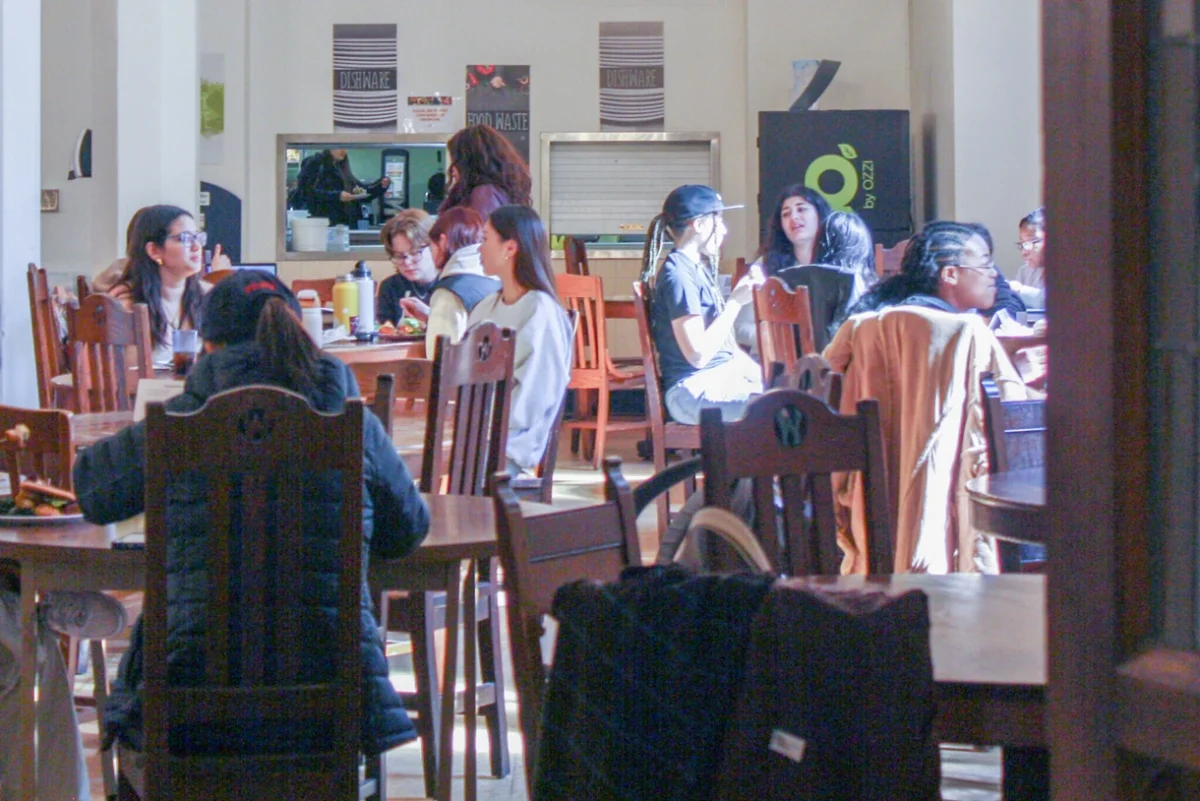
By KRISTEN GREEN ’14
Features Editor
Last week, at the Communicating Science Symposium hosted by Wellesley Energy and Environmental Defense (WEED), attendees were treated to a buffet of vegetarian and vegan options, including ratatouille, quinoa and garbanzo bean lemon salad, grapefruit avocado and greens salad and crostini with pea pesto and tomatoes, all prepared by members of Slow Food Wellesley.
As a member organization of the Green Umbrella, a consortium of student organizations on campus dedicated to environmental sustainability and green living, Slow Food agreed to cater the event and prepared food for 143 people.
Slow Food is one of two main student organizations at Wellesley that focus on culinary acvities. The other, Wellesley College Cooking Club, also hosts events open to students throughout the semester. Each organization seeks to provide an academic break for students to learn about, make and eat good food.
Slow Food Wellesley is part of the Slow Food International, which seeks to encourage interest around where food comes from, how food is produced and how food tastes. The global initiative was founded in 1989 and has since expanded to involve millions of people in more than 160 different countries. Their goals and activities include teaching about the pleasures of food, defending and celebrating gastronomic traditions and addressing hot topics in the food world, such as animal welfare.
Slow Food Wellesley, though not an official chapter of Slow Food International, seeks to advance the goals of the broader organization. These goals focus on the three main pillars of the movement: good, clean and fair food.
Sophia Garcia ’15, president of Slow Food Wellesley, said that the organization seeks to highlight one of the three pillars in each event it hosts throughout the school year.
“What we try and do at Wellesley is, we understand that there are limitations to what we can do and what we expect students to do with their food,” Garcia said. “And we try and just bring people with a good meal and hopefully they walk away with a different look at what they’re eating.”
Their next event is “Exploring Latin America through Food.”
“We’re hoping that will show students that Latin American food and Mexican food is not just one type of food and that there’s a varying difference in that,” Garcia said. “Then we’re also going to talk about worker rights and fair trade.”
By framing the meal within a discussion of the environment in which the food was produced, Garcia hopes to pique student interest in all aspects of the food they consume.
“We try and make every student who comes to an event or a meeting think more complexly about what they’re eating,” she said. “So we don’t want them to just think about food miles or whether this product is seasonal or organic. We want them to think about really the story behind the product that they’re eating and the story behind the food.”
While Slow Food Wellesley has collaborated with various organizations on campus, including the Botanistas, the German Club, the Italian Club, French House and MEZCLA, their interaction with another culinary organization on campus, Wellesley College Cooking Club, has mostly been limited to sharing cooking supplies.
Cooking Club, also known as the Culinary Society, hosts a variety of food-centric events on campus each semester.
“Culinary Society aims to create a stress free zone for the Wellesley community, where everyone can share and enjoy their love for food,” Annabelle Zhang ’14, president of Cooking Club, said.
Cooking Club holds study breaks throughout the semester, such as cookie movie night, and they also host a series of events aimed at teaching attendees how to perform basic tasks in the kitchen.
Like Slow Food Wellesley, Cooking Club also collaborates with various organizations on campus in order to produce events that a variety of students attend. Cooking Club worked with Slater International Center to put on a globally-inspired brunch in the fall and catered the first Founder’s Day celebration last spring. The organization also hosts a themed dinner during reading period each year. Past themes include chili cook-offs and a night in Paris.
Cooking Club includes about 40 members on campus, and their latest open event offered Cronuts, a combination of a donut and a croissant, in the Lake House kitchen. Throughout the rest of the semester, they will hold various events that will not be advertised widely, including a pasta making workshop, a nutella making event and a panini event, in which the Botanistas will provide fresh sprouts for the sandwiches.
In articulating Cooking Club’s message, Zhang emphasizes the importance of enjoying food as a part of everyday life.
“We hope through the process of preparing and enjoying food we shift focus from study and other more serious concerns to the beauty of life even just momentarily,” she said. “Life at Wellesley can be extremely stressful at times, and we want people to slow down and relax with us.”




